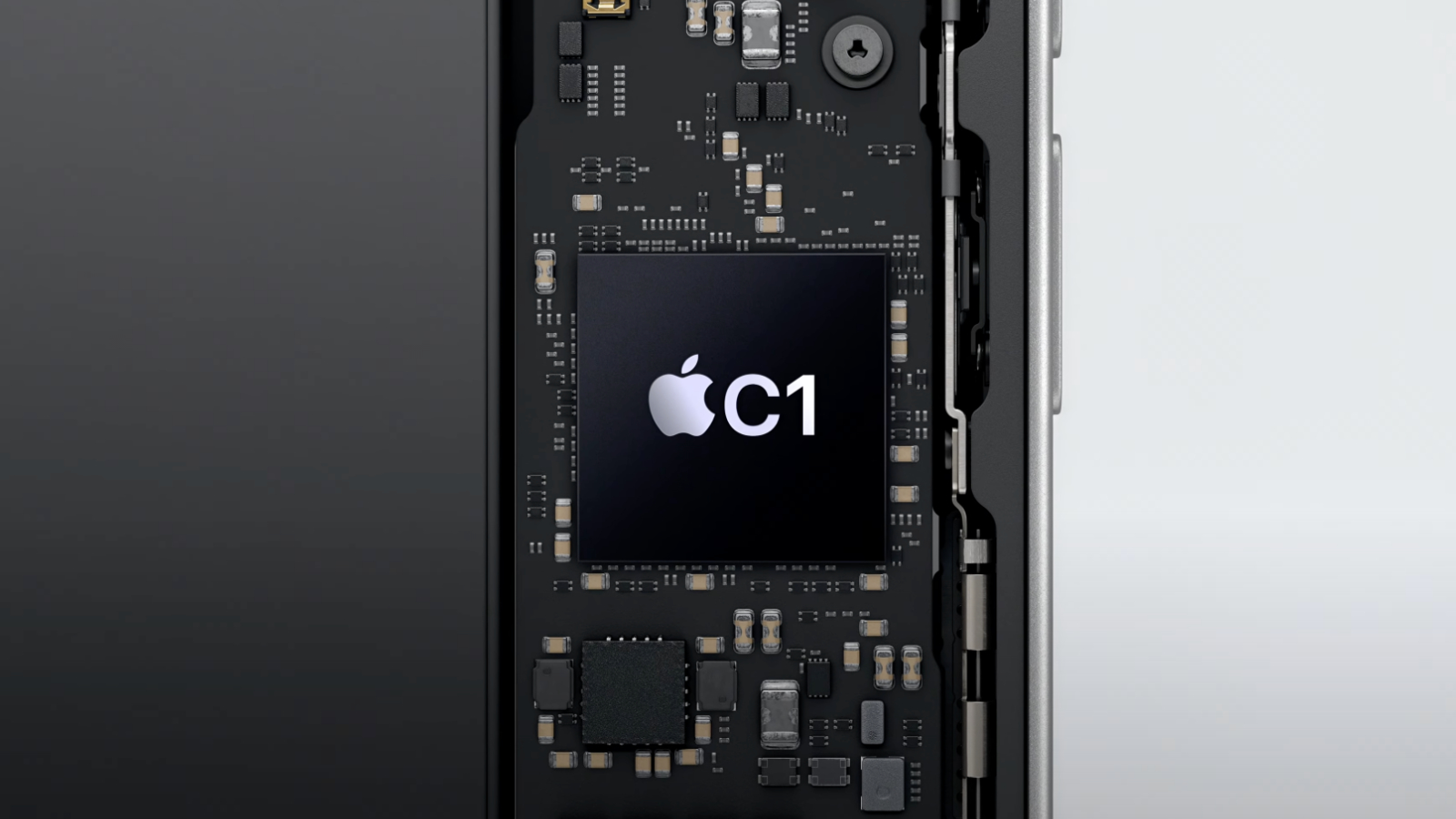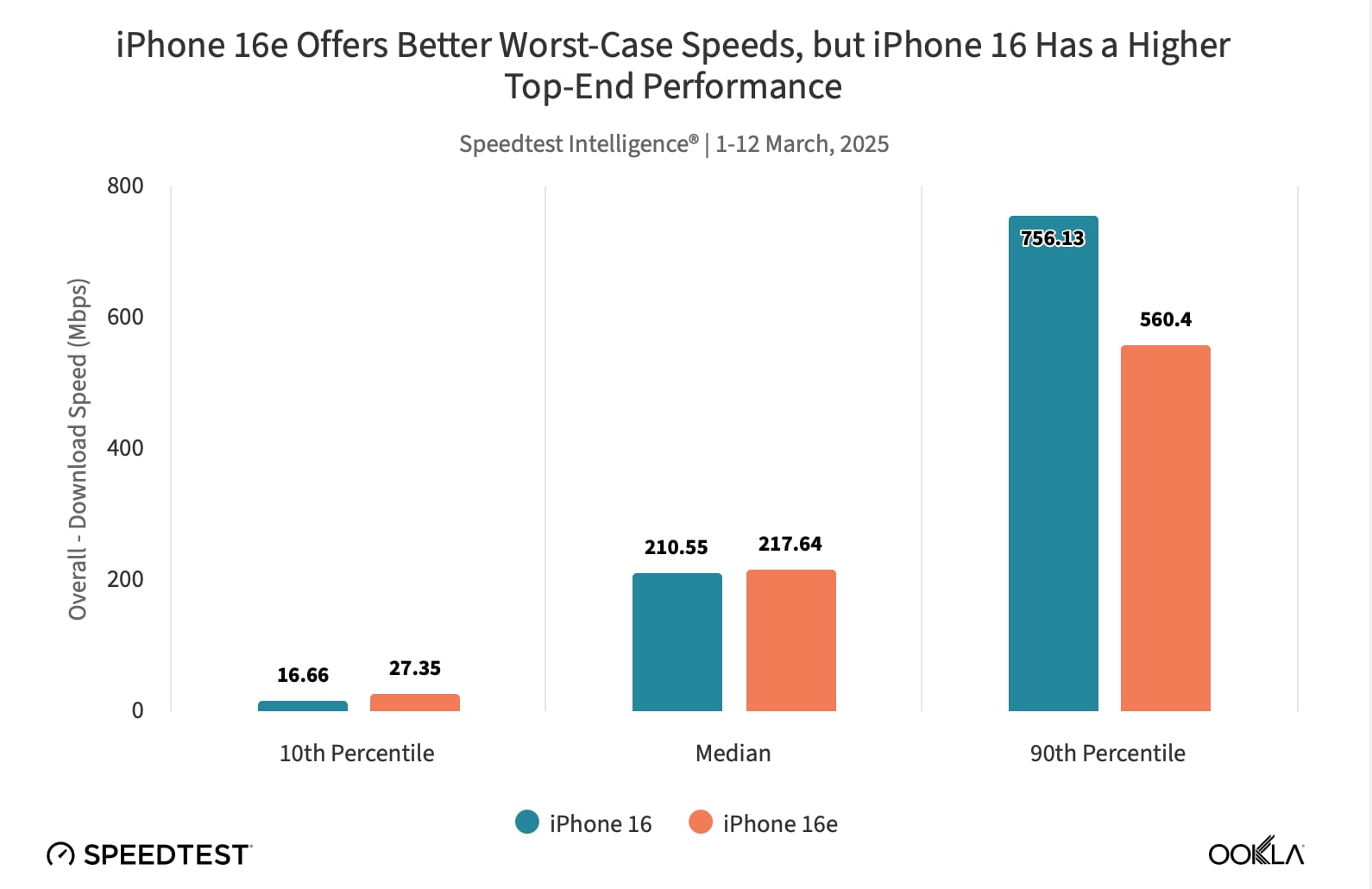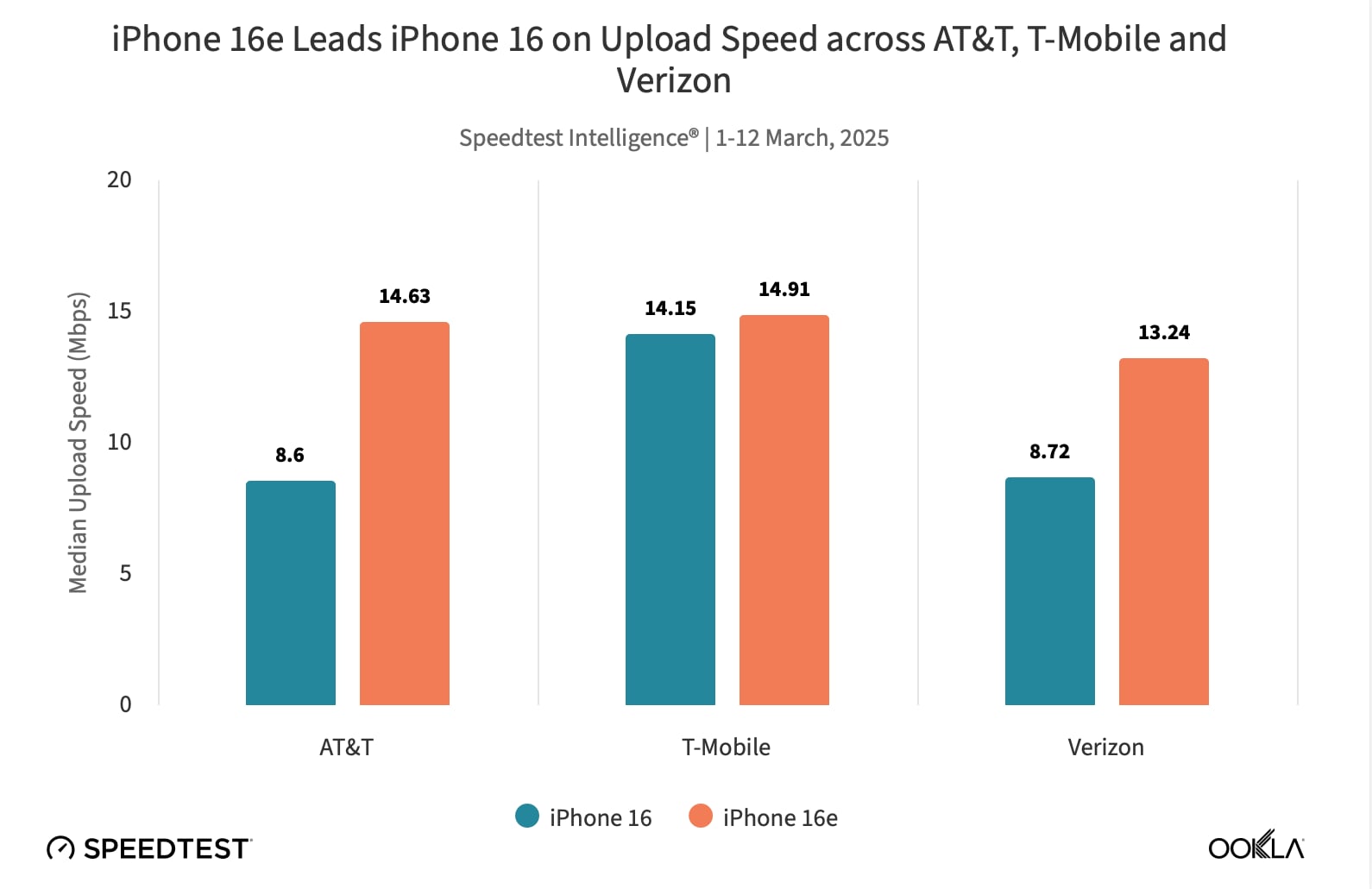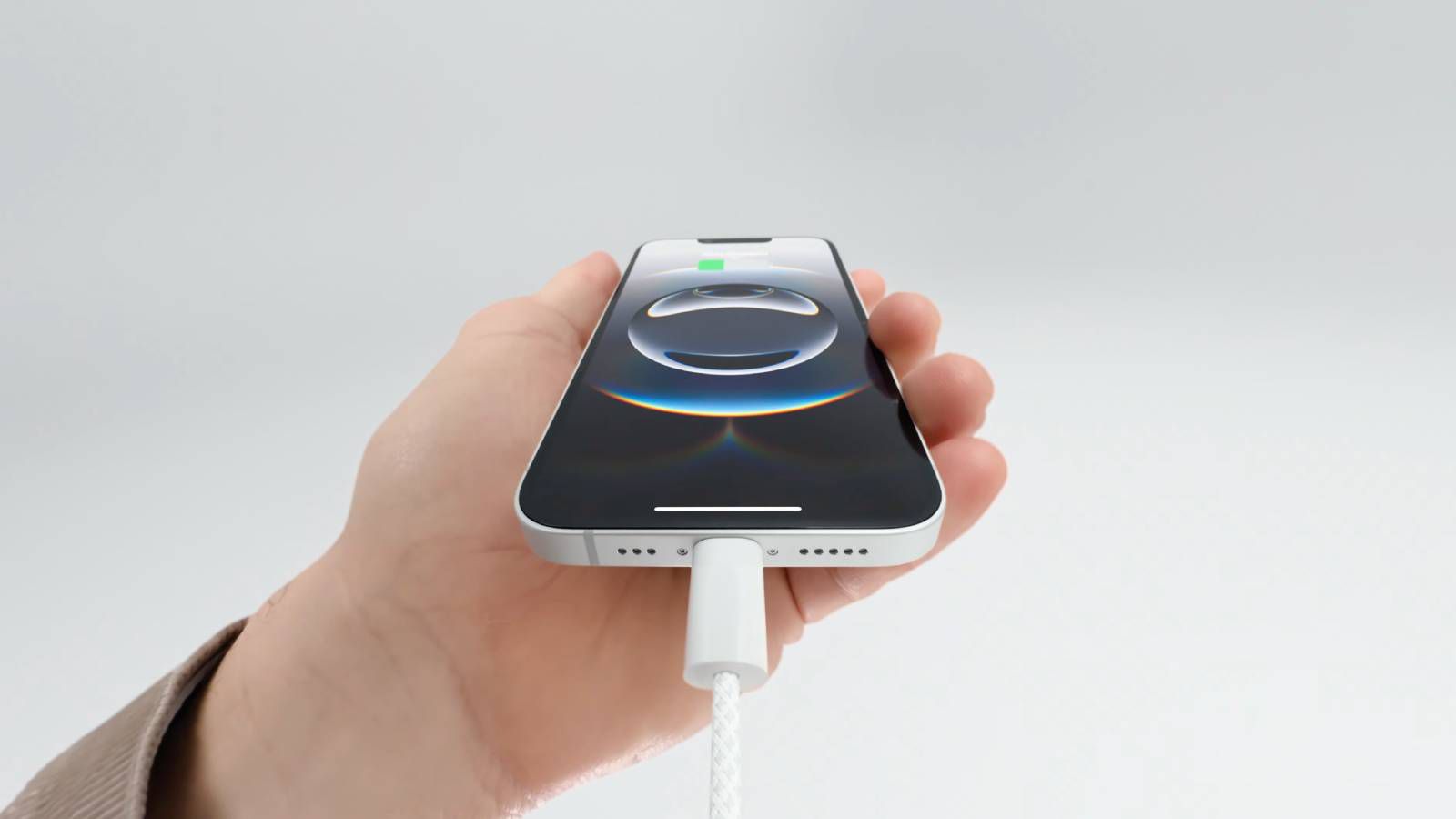
The iPhone 16e includes Apple's first custom-designed C1 modem, and since it's a new chip category for Apple, there have been questions about how the C1 measures up to the Qualcomm modems that Apple has been using for years. As it turns out, the iPhone 16e performs almost as well or better than the iPhone 16 in many speed tests that compare sub-6GHz performance, but it does vary by network.

According to cellular performance data shared by Ookla, Verizon and AT&T iPhone 16e users saw better median download speeds than iPhone 16 users, but T-Mobile users saw slightly higher median download speeds with the iPhone 16 than the iPhone 16e.
When looking at the highest speeds across carriers, the iPhone 16 wins out over the iPhone 16e because the iPhone 16e does not have mmWave 5G support. The iPhone 16e cannot connect to the fastest mmWave 5G networks, and it is limited to sub-6GHz connectivity. mmWave is found in urban areas and is less widespread than sub-6GHz.

In situations where connectivity was poor, the iPhone 16e outperformed the iPhone 16.
Ookla's test revealed that T-Mobile users with an iPhone 16e saw median download speeds of 264.71 Mb/s, while users with an iPhone 16 saw median download speeds of 357.47, a 24 percent increase in speed. According to Ookla, the iPhone 16e's underperformance on the T-Mobile network could be due to T-Mobile's 5G standalone network and advanced features like carrier aggregation.
For Verizon users, download speeds were low for both the iPhone 16e and the iPhone 16, which seems to be a network issue. iPhone 16e users saw median download speeds of 140.77 Mb/s on Verizon. iPhone 16 download speeds were even lower at 124.4 Mb/s.
As for AT&T users, median download speeds for the iPhone 16e were at 226.9 Mb/s, and 146.49 for the iPhone 16.
The iPhone 16e outperformed the iPhone 16 in upload speeds across all carriers, with the most notable difference on the Verizon and AT&T networks. T-Mobile was the fastest network overall for both the iPhone 16e and the iPhone 16 in download and upload speeds.

With the C1 modem, Apple was able to increase efficiency, and it draws less power than Qualcomm modems. Apple says the C1 is the most efficient modem that's ever been used in an iPhone, and the iPhone 16e does indeed have longer battery life than the iPhone 16.
The C1 modem is Apple's first step toward independence from Qualcomm, and Apple has long been aiming to reduce its reliance on Qualcomm technology. Apple is already working on the C2 modem for future devices, and it is expected to include mmWave 5G support.
Article Link: Here's How the iPhone 16e's C1 Modem Stacks Up Against the iPhone 16 Qualcomm Modem


